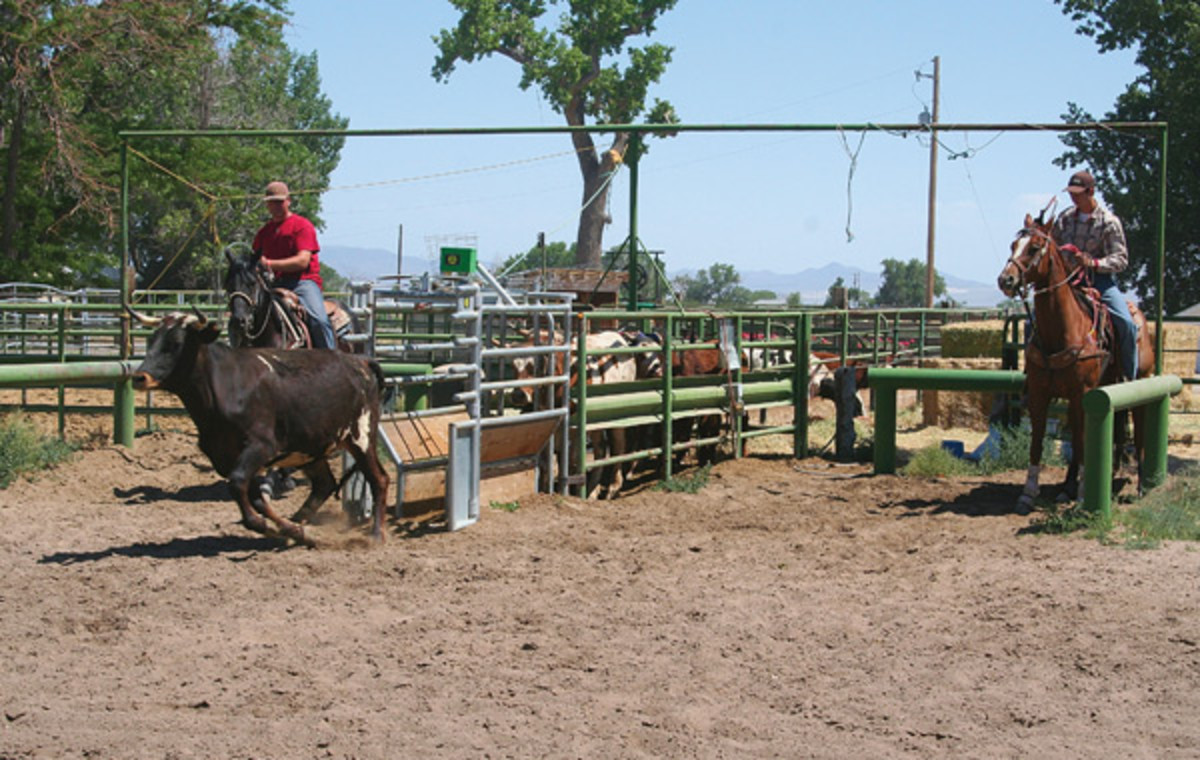
When I’m asked about what to feed a roping horse, or for that matter roping steers, my answer is a somewhat vague, “Well, it depends.” I think there are a lot of variables to consider with the individual animal, and those variables dictate what or how to feed each one.
I live on the Central Coast of California in an area that grows good quality hay, both alfalfa and grain. I typically feed a little of each type of hay to my horse. Like most recreational ropers, I don’t run a lot of steers daily on him, so with good quality hay I don’t feel like my horse needs a grain supplement.
I try to keep a horse in good flesh and in a good state of mind with the right balance of exercise and diet. Sometimes in the early spring, when the weather prevents regular use and it’s cold, I wish I had hay with less energy. It would take less riding to get my young horse in the right mindset to rope.
Generally speaking, I think as horses get older and are being used harder, a grain supplement or pellets may be indicated. Basically, you feed the amount and type of diet that results in a comfortable balance.
There are other considerations in my mind to stick to a forage-type diet rather than high-energy grains. Horses evolved as grazing animals, and their digestive tract is better designed for roughage than grain. Some horses don’t handle high-carbohydrate diets well, and you get the occasional “tying up” syndrome with the muscles as a consequence.
The same philosophy on feeding also applies to roping steers, in my opinion. We sometimes have some dairy, or half dairy, cattle to rope because they’re good to train young horses on. To keep this type of cattle going, you can feed them just about free choice good pasture or hay. If you have slick Longhorns, I think you have to restrict their diet for the best results. Cattle that are too strong or fleshy just make it hard on themselves, the horses and the ropers.
Another point to consider is to try and not rope cattle when they’re “full.” It seems to me they just get “heavy” on the rope and can start to develop bad habits. So to sum it up, I think it’s just as important to consider the effect of diet on the mind or emotional state of horses—and cattle—as the body. It is often a series of approximations to find the right balance for each individual.










